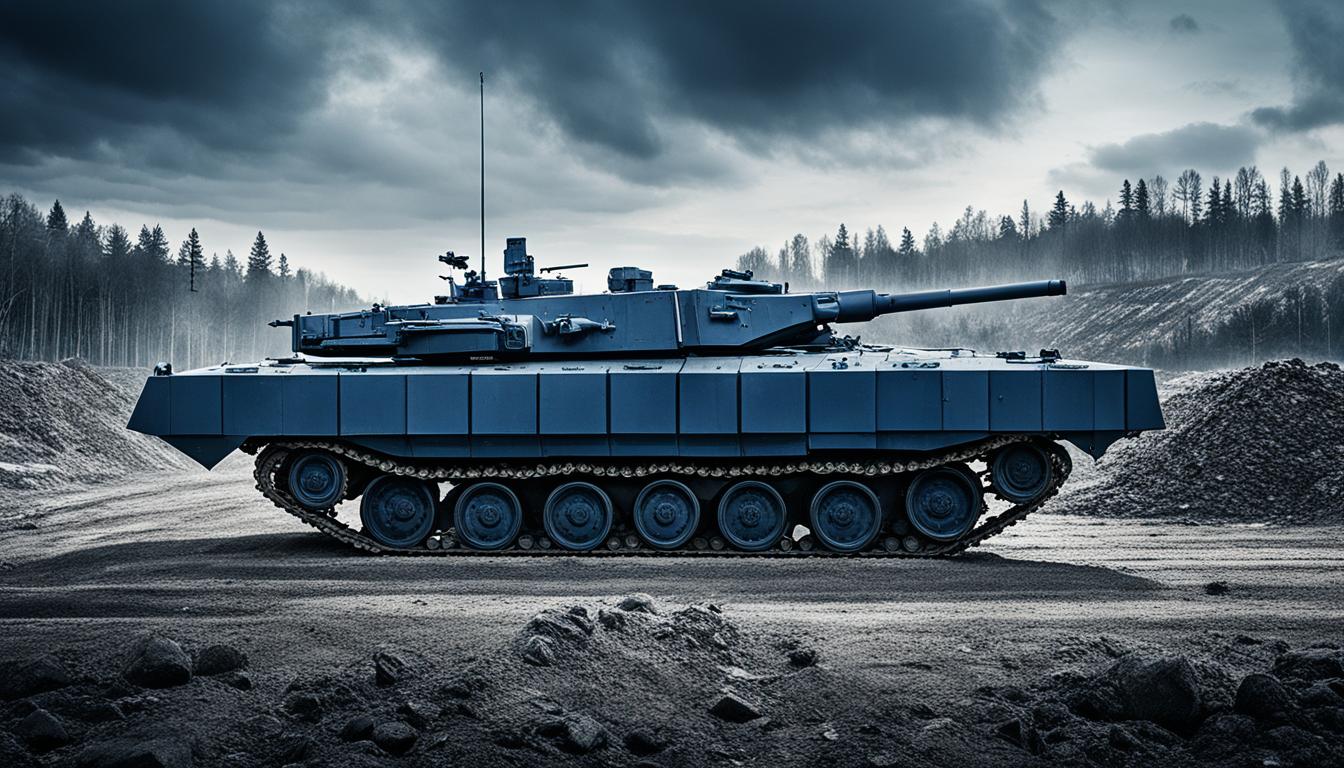The role of private military groups in modern warfare is changing. The Wagner Group’s actions in Poland are a clear example. These mercenaries highlight Russia’s role in the Polish security debate and in wider geopolitical tensions. This report will look at what the Wagner Group is doing in Poland. We’ll explore how it affects the area’s stability and NATO’s plans.
There are concerns about the Wagner Group’s secret actions in Poland. These activities are raising alarms with Polish leaders and globally. By looking closely, we find a mix of military, political, and psychological issues. These could change how we see security in Eastern Europe. They might also threaten the borders of countries caught between major powers.
Key Takeaways
- Examination of the Wagner Group’s mercenary group activities within Polish borders.
- Analysis of the implications stemming from Russian paramilitary involvement.
- Evaluation of the rising Polish security concerns due to non-traditional warfare.
- Discussion on geopolitical tensions orchestrated by private military company operations.
- Insight into the broader impacts on Eastern European stability and NATO’s defence posture.
Historical Context and Emergence of Wagner Group Poland
The Wagner Group’s move into Poland changes the balance of Eastern European conflict zones. This shift raises concerns about regional security. We look at how the Wagner Group started and grew in Poland. The focus is on Russian proxy warfare and paramilitary actions that shake the established peace.
Origins of the Wagner Group in Eastern Europe
The Wagner Group emerged in the 2010s, quickly becoming a key force in Eastern Europe. Seen as Moscow’s arm, their presence heightens security destabilisation fears in this troubled region.
The Strategic Expansion into Poland
The group’s move to Poland is alarming because of its key location. Poland, at the EU’s border, faces the risk of Russia’s indirect warfare. The Wagner Group’s actions there highlight Russia’s strategies in hybrid conflicts.
Relations with Russian Military Operations
The Wagner Group claims to be independent, yet it works closely with the Kremlin. This secret partnership lets Russia disrupt areas without using its official military. This makes the Wagner Group a strong tool for Russia.

| Region | Conflict | Wagner Presence | Russian Military Interests |
|---|---|---|---|
| Eastern Ukraine | Donbass War | Reported | High |
| Syria | Civil War | Confirmed | Strategic |
| Libya | Civil Conflict | Verified | Resource-based |
| Africa (General) | Various Insurgencies | Widespread | Expansive |
| Poland | Geopolitical Tensions | Emerging | Destabilisation |
The Wagner Group’s role, against Russia’s plans, shows growing tensions. NATO’s eastern side is at a crucial point, facing clandestine Russian warfare. This situation underlines the ongoing security destabilisation in Eastern Europe.
Assessment of the Wagner Group Poland’s Influence
When we look at how the Wagner Group affects Poland, it’s clear their influence is profound. They challenge Poland’s control over its own affairs. This is a direct attack on the nation’s sovereignty.
The Wagner Group’s actions in Poland show a mix of hybrid warfare tactics. They mark a scary change in warfare. These activities aim to weaken Poland from the inside out.
- Influence operations designed to disrupt political coherence
- Military engagements that complicate Poland’s defence posture
- Psychological warfare, sowing discord among citizens
The Wagner Group uses clever strategies to gain power in Poland. This keeps Polish officials always on edge. The link between these tactics and Eastern European security is crucial. They make the region unstable, with sovereignty always in question.
The Wagner Group’s actions change how influence operations work. Poland’s situation highlights bigger issues in Eastern Europe.
The Wagner Group’s impact goes beyond Poland. It challenges the region’s security systems. These systems took a lot of effort and resources to build.
The effects of the Wagner Group reach outside Poland. Their actions reflect Russia’s wider goals. The world needs to rethink how it sees warfare today. This includes the threats from groups like Wagner.
Conclusion
In the complex world of international security policy and defence strategies, private military companies (PMCs) are a big challenge. The Wagner Group, a Russian military company, is working in Poland. This is worrying for many reasons. It reminds people of past conflicts and shows why we need to update our European defence policy. We’ve looked into how PMCs operate in secret and the risks they bring to peace and stability.
Dealing with paramilitary threats requires a smart and flexible plan. We need to be ready before problems arise and able to respond quickly. The current European plan may need big changes to handle the tactics of groups like the Wagner Group better. It’s very important to create a security strategy that not only identifies but also reduces the dangers these groups bring to countries and the larger global scene.
There’s also a huge need for clearer rules on the international level. As countries face more challenges from PMC actions, making these rules better is crucial. These rules help keep international law and protect countries’ borders. Governments and global organizations need to work together better. This will help make sure defence doesn’t become unpredictable due to irregular warfare. With strong legal, military, and diplomacy efforts, we can lessen the harmful impact of PMCs worldwide.
FAQ
What are the main activities of the Wagner Group in Poland?
The Wagner Group seems to focus on secret operations in Poland. These operations cause worry for Polish leaders and others around the world. They might include fighting, causing political trouble, and spreading information that could hurt Poland’s independence and stability in the area.
How is the Wagner Group’s presence in Poland affecting geopolitical tensions?
The Wagner Group’s actions in Poland are making security in Eastern Europe and NATO’s defence plans more complicated. Because Poland is close to the EU, these activities are seen as increasing tensions. They might also help Russian military goals.
Can you elaborate on the origins and expansion of the Wagner Group in Eastern Europe?
The Wagner Group started in the early 2010s and is linked to Russia. It moved into Poland and other places in Eastern Europe. This has caused worries about security and the possibility of fighting by representatives in these regions.
What relation does the Wagner Group have with official Russian military operations?
Many think the Wagner Group works as an unofficial part of Russia’s military efforts. They do jobs that fit with Russia’s goals, but it’s hard to prove a direct link. Still, many suspect there are connections.
How does the presence of the Wagner Group impact Polish sovereignty?
The operations of the Wagner Group are viewed as a danger to Poland’s independence. They could hurt national security through different types of hybrid warfare. This could also affect Poland’s political stability and challenge its authority and borders.
What are hybrid warfare tactics, and how does the Wagner Group employ them?
Hybrid warfare mixes traditional fighting, irregular battles, and cyber attacks with other efforts to confuse and control an enemy. The Wagner Group is said to use these methods in Poland and elsewhere. This approach changes how we see security.
What challenges do PMCs like the Wagner Group pose to European defence policies?
PMCs, including the Wagner Group, are tricky for European defence policies because they work in a legal grey zone. This makes it hard for nations and global groups to deal with their actions. It shows the need to rethink defence strategies and create clearer laws to face these kinds of threats.



